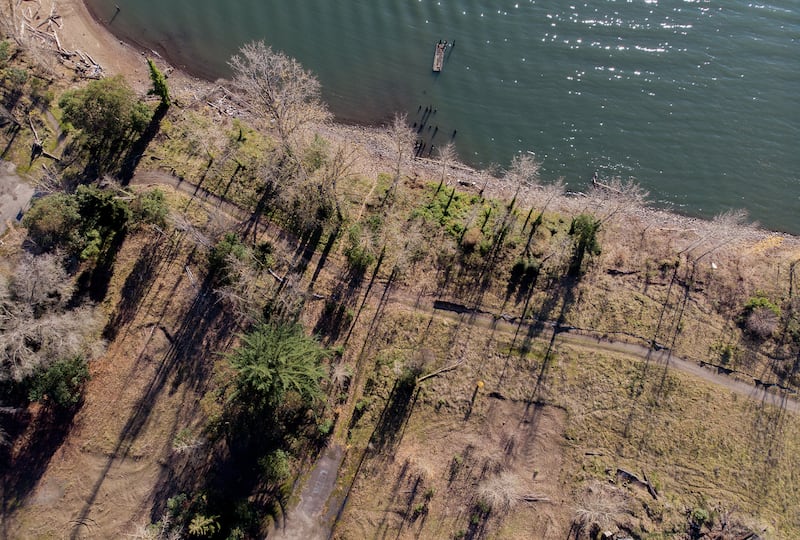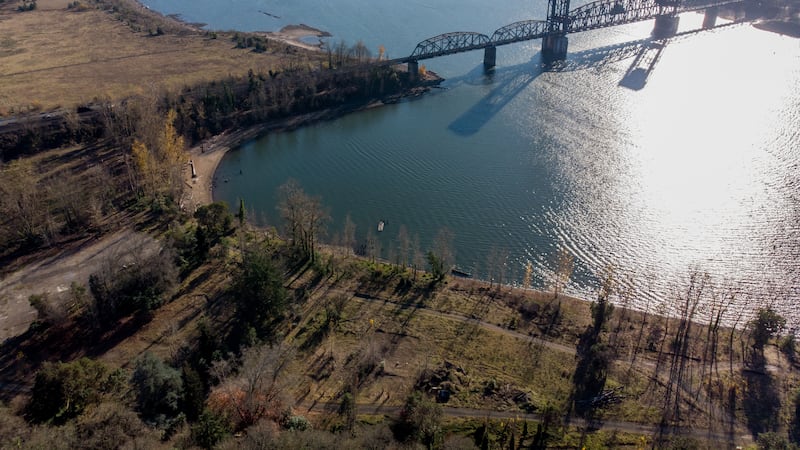The Metro Council voted unanimously July 28 to proceed with a full cleanup of Willamette Cove, a 27-acre parcel of land that includes 3,000 feet of Willamette River beach in North Portland.
As WW previously detailed, the agency has since late 2020 mulled two options: leaving 23,000 cubic yards of contaminated soil in place under a durable cap (dirtier but cheaper), or hauling away the contaminated dirt (cleaner but more expensive).
The Oregon Department of Environmental Quality recommended the former, and advocates feared Metro would agree (“Buried Treasure,” WW, Dec. 9, 2020).
So Native tribes and groups that include the Portland Harbor Community Coalition and Audubon Society of Portland as well as North Portland neighbors pushed for the more extensive and expensive cleanup, ultimately swaying Metro.
Metro Council President Lynn Peterson says she and her colleagues decided doing the right thing was more important than doing the least expensive thing.
“Metro looks years and even decades into the future and is acting on what this region needs,” Peterson says.
Cassie Cohen, executive director of the Portland Harbor Community Coalition, says tribal involvement appeared to make the difference on an issue her group has been working on since 2013. “I think when the tribes formally got involved, that changed things,” Cohen says.
Rose Longoria, regional Superfund projects manager for the Yakama Nation, says she and her colleagues drilled their position home with Metro and other agencies involved in the Superfund process.
“It was a high priority for us to have the greatest cleanup possible,” Longoria says. The Yakama want healthy fish and believe capping toxic material is shortsighted. It would both restrict public access and leave the property vulnerable to flood damage.
Michael Pouncil, a neighbor who often walks the contaminated beach, says it’s time for Metro’s deeds to match its rhetoric. “You can’t do all this talking about equity and not then provide public access to the river in one of the lowest-income parts of the city,” says Pouncil, who is Black.
In case you haven’t followed the dispute, here’s a quick primer on why Willamette Cove matters.

Where’s the land and why’s it dirty? The cove, tucked between the Burlington Northern Santa Fe Railway and St. Johns bridges on the east bank of the river, is off-limits to humans because of toxins left over from shipyard work on the site throughout the 20th century. Metro bought the property from the Port of Portland in 1996.
How much will cleanup cost? Right now, the estimate is $17.5 million. That’s considerably more than DEQ’s preliminary 2020 estimate of $10.7 million, but construction costs have soared as has the price of trucking soil to a landfill. “Our region looks to us to take bold action to get to the root of problems, not just to look for superficial, easy fixes,” says Metro’s Peterson. “We have the opportunity to not just do a good job but do a great job that will benefit the entirety of the region for generations to come.”
Where’s the money coming from? Metro is still flush with cash from a 2019 greenspaces bond that raised $475 million. It will make up to $10 million available from that pot of money. The port is also on the hook for some of the costs—although how much is unclear because the terms of the 1996 sale remain confidential. Longoria says she’s elated but also frustrated that getting to a full cleanup vote took so long. “Agencies involved in the Superfund process make a lot of work,” she says. “We need them to be more focused on outcomes.”
